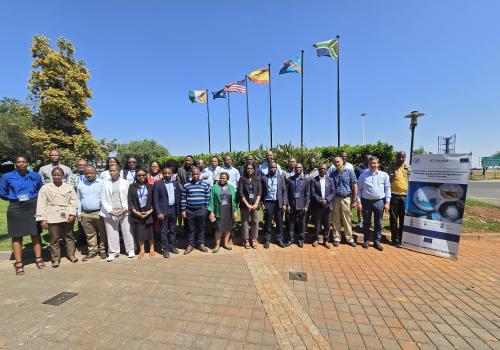The Southern African Development Community (SADC) Secretariat convened a regional workshop in Johannesburg, South Africa, from 17 to 25 September 2025, to build technical capacity in the use of the ClimSA Station platform for agrometeorological services.
Organised under the Intra-ACP Climate Services and Related Applications (ClimSA) Programme for the SADC region, with support from the European Union (EU) and the Joint Research Centre (JRC), the training brought together technical experts from National Meteorological and Hydrological Services (NMHSs), the SADC Climate Services Centre (CSC) and the representatives of the Ministries of Agriculture from SADC Member States.
The SADC region remains highly vulnerable to climate extremes, from recurrent droughts and crop failures, to floods that disrupt livelihoods and food security. With agriculture forming the backbone of many economies in the region, there is an urgent need for reliable, user-driven climate information that supports planning and decision-making and regional and national levels.
The capacity-building focused on the use of the ClimSA station, which is a key technical deliverable under the ClimSA programme. Through this training, participants are equipped with practical skills to generate and apply agrometeorological products, including crop yield forecasting. Climate experts worked jointly with agricultural experts to co-produce bulletins, thereby ensuring that climate information is tailored to the realities faced by farmers, planners, and policymakers.
The workshop reinforced the importance of strengthening climate services within regional policy frameworks while ensuring that they translate into practical benefits for the users. By enhancing the technical capacity of institutions and promoting co-production with agricultural stakeholders, SADC Secretariat is improving the delivery of climate information that farmers, planners, and policymakers can act upon. This approach supports food security strategies, safeguards livelihoods, and contributes to long-term resilience for communities most vulnerable to climate variability and shocks across the region.

